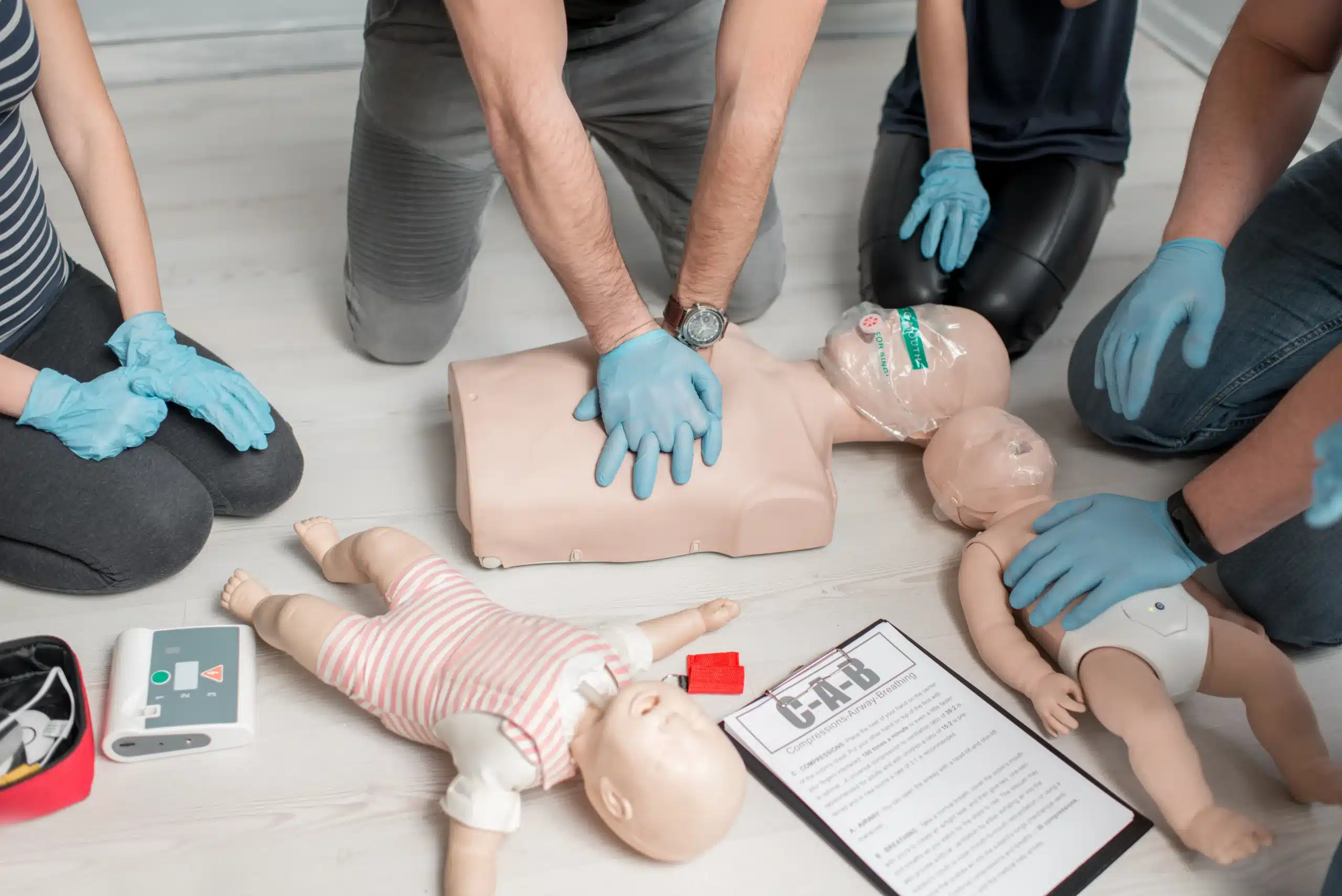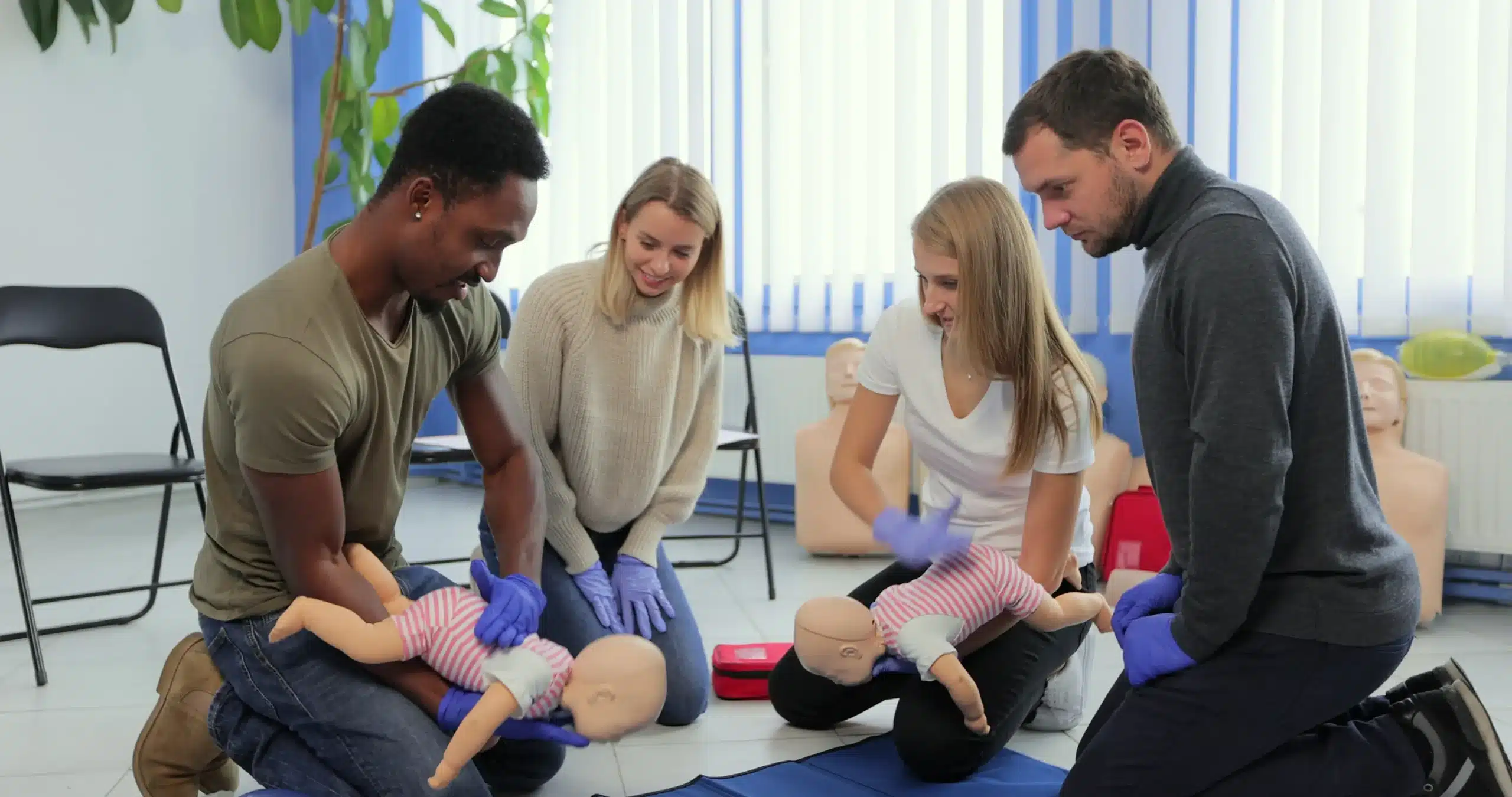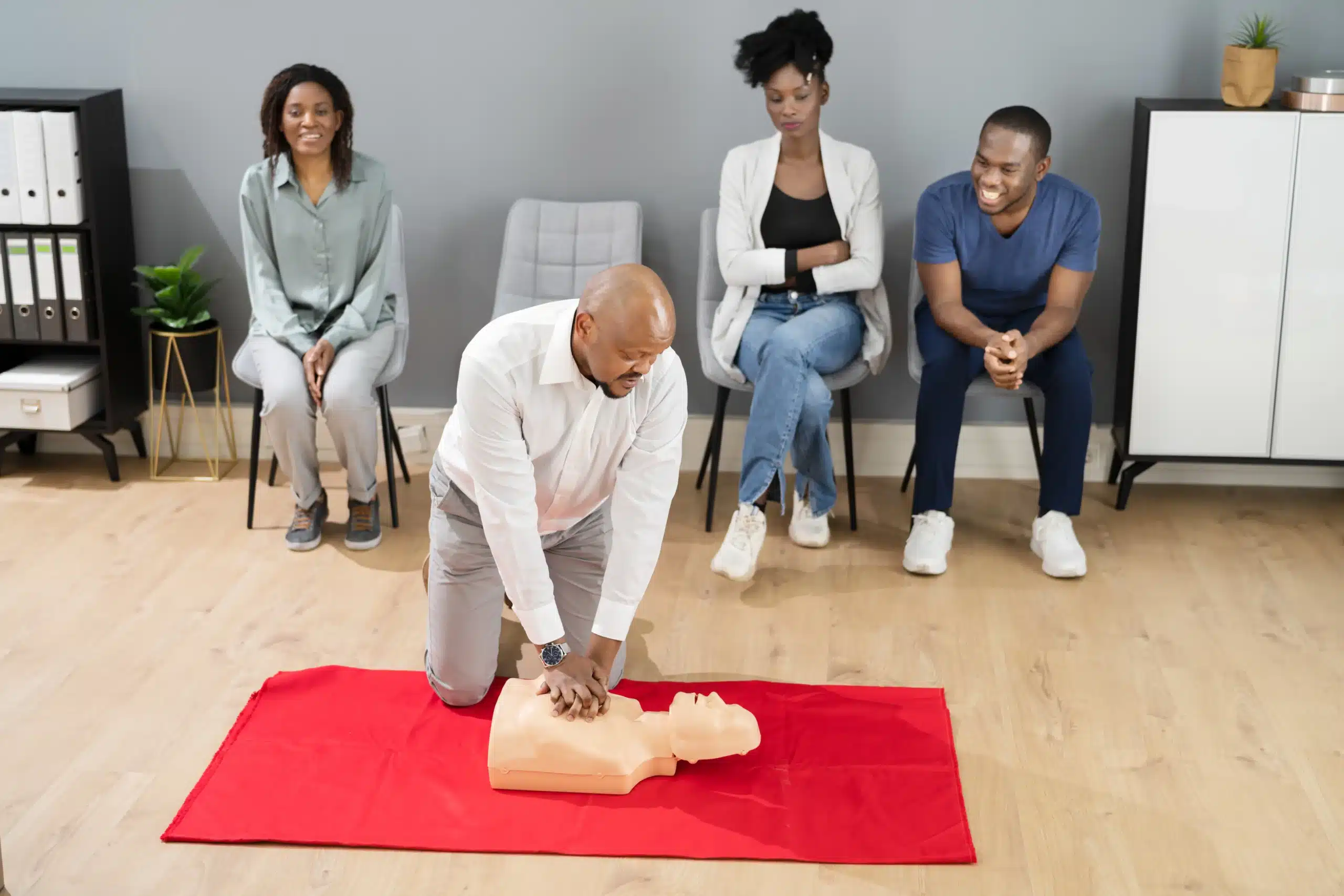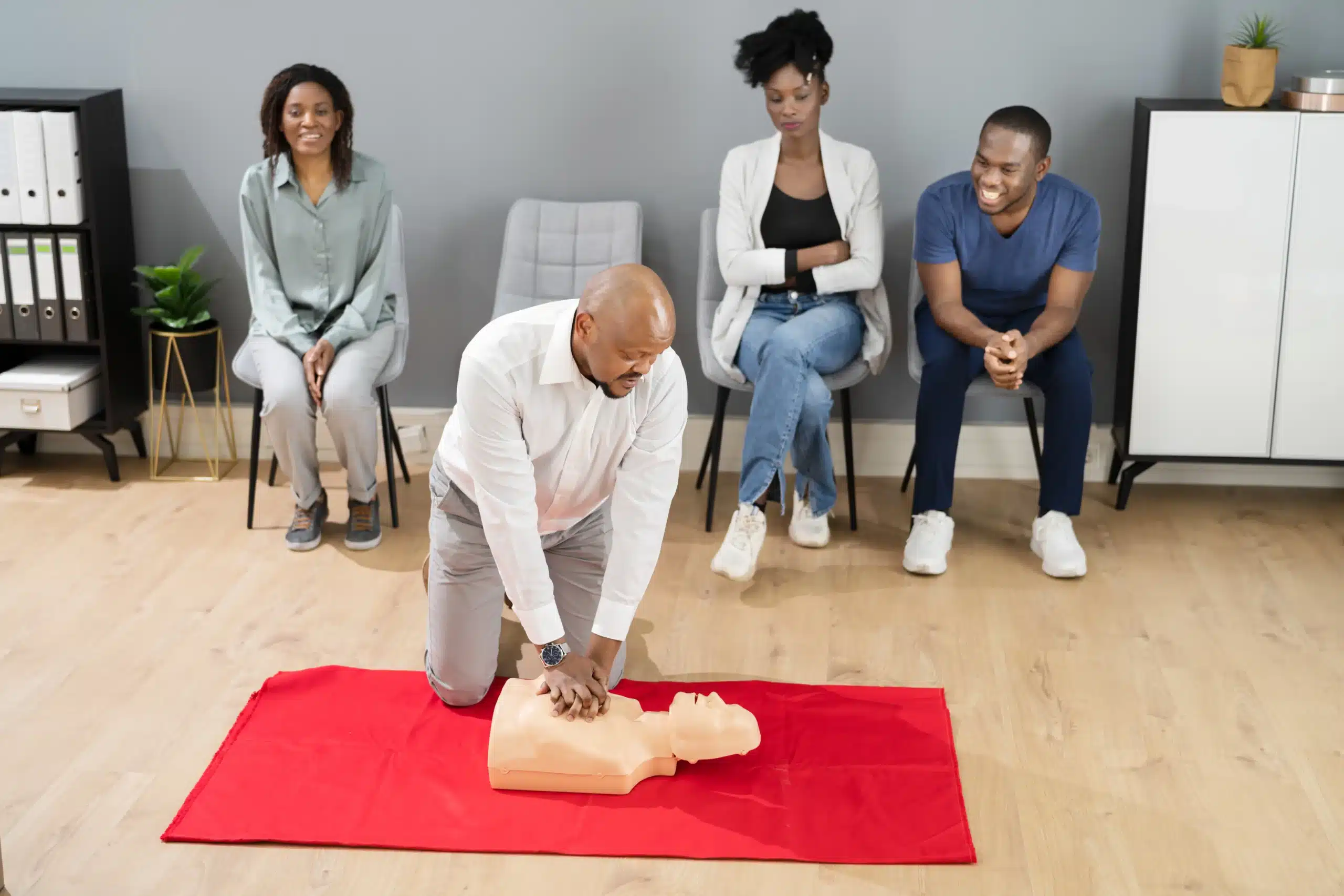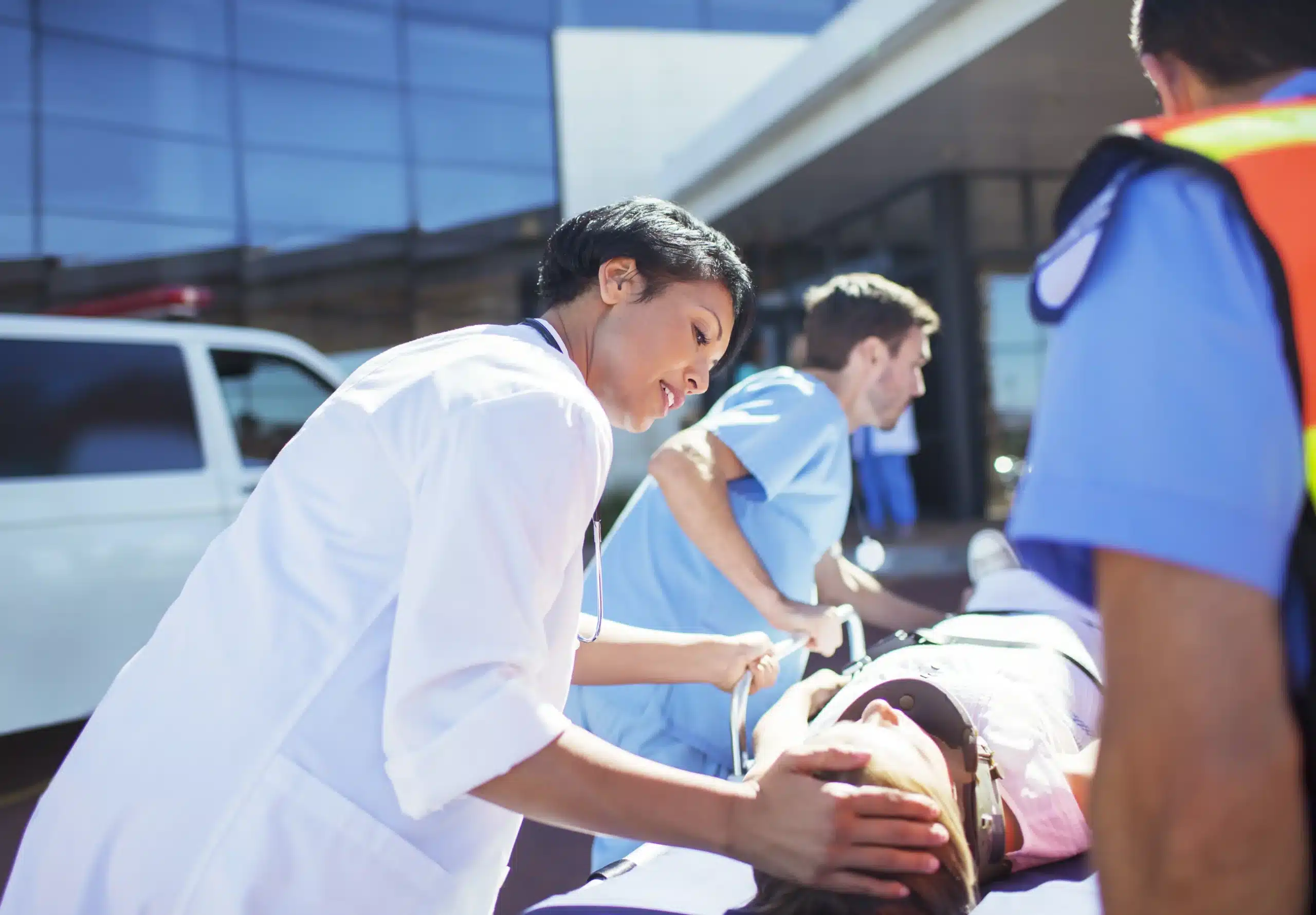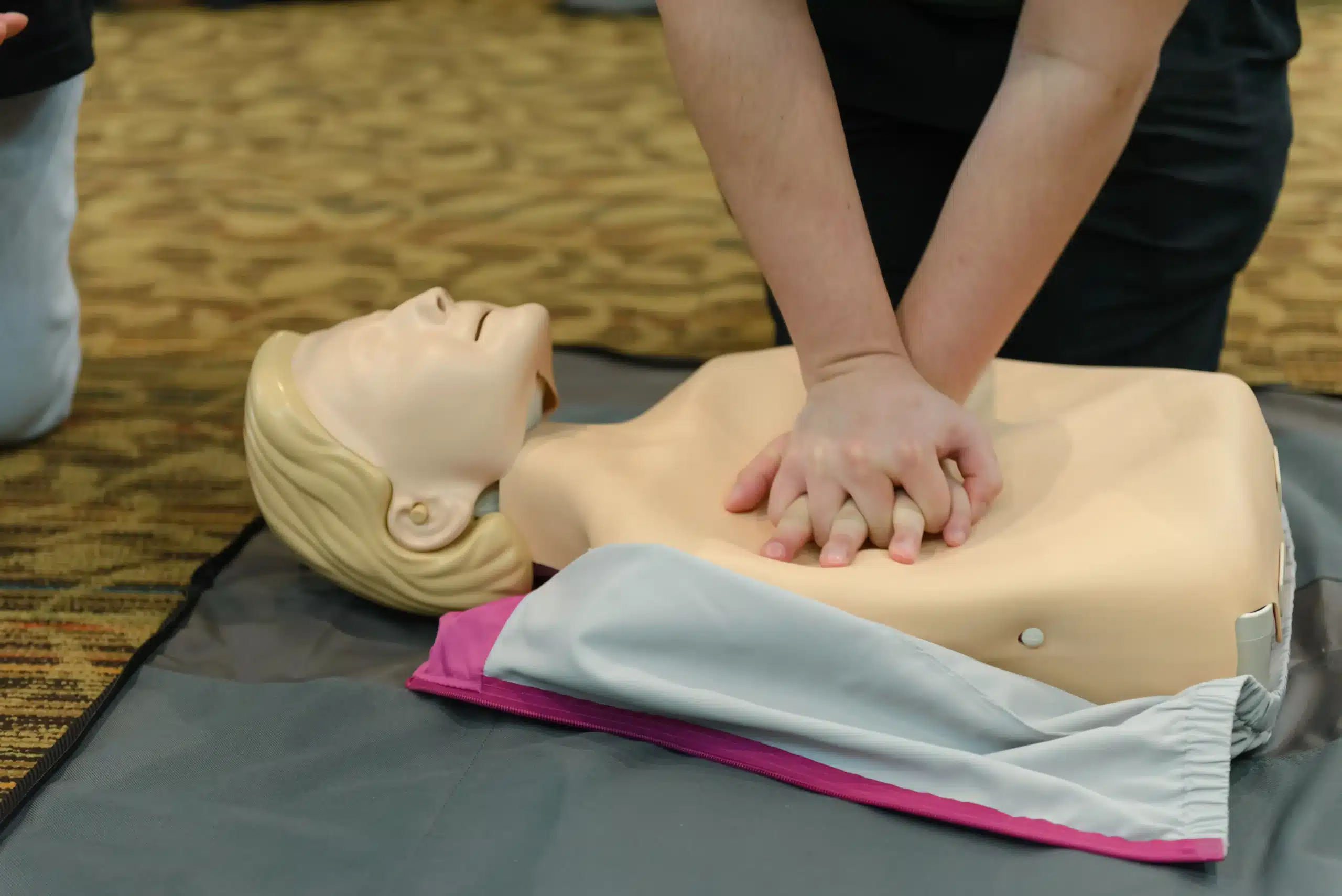Seeking a flexible and efficient way to obtain your ACLS certification in San Francisco? Look no further than ACLS HeartCode. This innovative blended learning program allows you to complete the cognitive portion of the course online, fitting it around your busy schedule. Then, you’ll solidify your skills with a focused in-person skills session. This article serves as your comprehensive guide to ACLS HeartCode in San Francisco, covering everything from course structure and costs to the benefits of this modern approach to training. We’ll also delve into the challenges you might encounter and provide valuable resources to support your learning journey.
Key Takeaways
- HeartCode ACLS blends online learning with hands-on skills: This flexible format lets you learn the material at your own speed and then practice your skills in person with an AHA instructor.
- Finding the right training center is important: Consider factors like cost, location, schedule, and instructor experience when choosing where to get certified. Reading reviews and comparing providers can help you make an informed decision.
- Practice and preparation are essential: Make the most of online modules, practice sessions, and feedback devices to build confidence before your in-person skills assessment. Taking advantage of available resources will set you up for success.
What is ACLS HeartCode?
HeartCode ACLS is the American Heart Association’s (AHA) blended learning program for Advanced Cardiovascular Life Support certification. It combines online coursework with a streamlined, in-person skills session. It’s designed for healthcare professionals who need ACLS training and a flexible learning experience—doctors, nurses, paramedics, and other specialized providers. If you’re in the Bay Area and looking for convenient, high-quality ACLS training, HeartCode ACLS might be a good fit.
Key Features and Benefits
HeartCode ACLS offers flexibility. You complete the online portion at your own pace, pausing and reviewing as needed. This self-paced learning accommodates busy professionals. The online portion uses interactive modules, simulations, and case studies to reinforce what you learn. After you finish the online material, you’ll participate in a shorter, hands-on skills session with an AHA instructor. This blended learning format lets you absorb the information online and then practice your skills in person. Completing the HeartCode ACLS course gives you a comprehensive understanding of advanced cardiovascular life support, including team dynamics, communication skills, and advanced airway management techniques.
HeartCode vs. Traditional ACLS
The main difference between HeartCode ACLS and traditional ACLS is the format. Traditional ACLS courses are usually held entirely in person, often over a day or two. HeartCode ACLS, with its blended learning style, offers more flexibility. Both formats cover the same core ACLS content and lead to the same AHA certification, but the blended learning format lets you move through the material at your own speed. The in-person skills session for HeartCode ACLS is generally shorter than a traditional course, as you’ll have already learned the cognitive material online. If you learn best with a mix of online and in-person instruction, HeartCode ACLS may be preferable. Both options provide the training you need to handle cardiovascular emergencies.
ACLS HeartCode Providers in San Francisco
Finding the right ACLS HeartCode training provider is key to a successful learning experience. Here are a few reputable options in San Francisco:
Bay Area CPR
Bay Area CPR offers ACLS HeartCode training throughout the San Francisco Bay Area, including San Francisco, Daly City, San Mateo, and Oakland. They provide both the online portion and the required in-person skills session. Expect to pay around $260 for initial certification, which typically takes about 12 hours to complete. Renewal courses are generally less expensive, around $190, and require about six hours. Your ACLS certification is valid for two years.
HeartStart CPR
HeartStart CPR provides AHA ACLS training and certification in the Bay Area. They emphasize the importance of ACLS certification for healthcare professionals who might respond to cardiovascular emergencies. Contact them directly for current pricing information.
UCSF Medical Center
The UCSF Kanbar Center is an AHA Training Center offering BLS, PALS, and ACLS courses to UCSF students, house staff, and faculty. While their main focus is their internal community, it’s worth checking if they offer courses to the public.
San Francisco CPR Classes
San Francisco CPR Classes offers a helpful guide to ACLS HeartCode in San Francisco, covering course content, costs, and the benefits of this blended learning approach. This is a valuable resource for understanding ACLS training options in the city.
ProMed Certifications
While ProMed Certifications doesn’t appear to offer ACLS HeartCode training directly, they highlight the importance of high-quality ACLS courses that adhere to American Heart Association guidelines. They mention HeartStart CPR as a provider meeting these standards.
Course Structure and Time Commitment
The ACLS HeartCode course blends online learning with hands-on skills practice. This approach offers flexibility and allows you to learn at your own pace before demonstrating your skills to a certified instructor.
Online Component
The HeartCode ACLS course starts with an online module. This self-directed portion covers essential algorithms, protocols, and interventions for managing cardiopulmonary emergencies. You’ll work through interactive case studies and simulations, applying your knowledge in a virtual environment. This online training builds a strong foundation before you move on to the practical skills session. You can explore more information on ACLS courses at the Bay Area CPR website.
In-Person Skills Assessment
After completing the online component, you’ll schedule an in-person skills session with an American Heart Association instructor. This session focuses on demonstrating the skills you learned online. You’ll practice on mannequins and receive real-time feedback from your instructor, ensuring you’re proficient in essential life-saving techniques. Vive CPR offers a helpful overview of this blended learning format.
Total Time and Flexibility
The online portion of the ACLS HeartCode course typically takes around 8–10 hours to complete, while the in-person skills session lasts approximately 2–4 hours. This flexible structure allows you to fit the training around your schedule. Complete the online modules at your own pace, then choose an in-person session time that works for you. For a detailed breakdown of the time commitment and associated costs, review this ACLS HeartCode certification guide. Renewal courses typically require less time.
Cost and Value of ACLS HeartCode
When considering ACLS HeartCode training, understanding the pricing and overall value is helpful. This section breaks down the typical costs for initial certification and renewal, potential discounts, and the long-term return on investment for healthcare professionals.
Pricing and Renewal
In San Francisco, ACLS HeartCode certification typically costs between $260 and $290. Renewal courses are usually less expensive, around $190. Bay Area CPR offers competitive pricing for both initial certifications and renewals. Initial certification takes about 12 hours to complete, while renewals take around six. This flexible approach allows you to fit the training into your schedule.
Discounts and Promotions
Many training providers offer discounts and promotions to make ACLS HeartCode training more affordable. Check with your chosen provider for current deals. Websites like Express Training Solutions often list active coupons and promotions for various healthcare courses, including ACLS. Exploring these options could help reduce your training costs.
ROI for Healthcare Professionals
The value of ACLS HeartCode certification for healthcare professionals extends beyond the financial aspect. ACLS training provides essential knowledge in emergency medical care, giving you the skills to handle cardiovascular emergencies. The HeartCode ACLS course covers advanced cardiovascular life support, team dynamics, communication skills, and advanced airway management. These skills enhance your professional abilities, improve patient outcomes, and contribute to safer healthcare. The confidence and competence you gain through ACLS certification are invaluable throughout your career.
Common ACLS HeartCode Challenges
While ACLS HeartCode offers flexibility and convenience, it’s helpful to be aware of potential challenges so you can prepare accordingly. Understanding these hurdles can make your learning experience smoother and more effective.
Mastering Skills
The online portion of HeartCode ACLS provides a solid foundation in the algorithms and protocols. However, translating that knowledge into practical application requires dedicated practice. You’ll need to demonstrate proficiency in essential skills during the in-person skills session, including rhythm recognition, bag-mask ventilation, and intravenous access. As highlighted by Vive CPR, the skills session is a hands-on test of your abilities. Make the most of your practice time with manikins and other training equipment to build your confidence before the assessment.
Online to In-Person Learning
Switching from online learning to a hands-on skills assessment can be a shift for some students. The discussions on All Nurses highlight this transition. While the online modules offer interactive scenarios, the in-person session requires real-time responses and physical interaction with equipment and potentially other participants. If you find yourself needing extra support during this transition, don’t hesitate to reach out to your instructor for guidance. Many providers, like Bay Area CPR, offer additional practice sessions and personalized feedback to help bridge the gap between online learning and practical application.
Feedback and Assessment
One common concern for students is the effectiveness of online learning in preparing them for the high-stakes skills assessment. The good news is that many participants report feeling well-prepared after completing the HeartCode ACLS online modules. Course evaluations often indicate a high level of confidence among students in their ability to apply the skills learned. Constructive feedback from instructors during the skills session is also crucial for identifying areas for improvement and reinforcing correct techniques. This feedback helps solidify your understanding and ensures you’re fully prepared for real-world scenarios.
Resources and Support for ACLS HeartCode
Successfully completing your ACLS HeartCode certification involves more than just the online modules. Here’s a look at the resources and support available to help you confidently master the material and skills.
Instructor-Led Skills Sessions
The ACLS HeartCode blended learning experience combines online learning with crucial hands-on practice. After completing the online portion, you’ll participate in an instructor-led skills session. These sessions, like those offered at Bay Area CPR, provide a structured environment to demonstrate your skills and receive personalized feedback from a certified American Heart Association instructor. Think of it as a bridge connecting theoretical knowledge to practical application, ensuring you’re fully prepared for real-world scenarios. The skills session serves as a practical test and demonstration of the skills learned online, confirming your ability to perform under pressure. This blended learning approach ensures you gain both the knowledge and the practical skills necessary for effective patient care.
Feedback Devices and Manikins
High-quality CPR is paramount in any healthcare setting. To ensure you develop and maintain these crucial skills, ACLS HeartCode training incorporates feedback devices and manikins. These tools provide real-time feedback on your technique, allowing you to refine compressions, ventilations, and overall performance. This hands-on experience translates to greater confidence and competence in actual emergencies. As outlined in the ACLS Accelerated Competency Course guidelines, using these devices is essential for accurate assessment and skill development. This practice with feedback tools ensures you’re not just learning the steps but mastering the technique.
Pre-Course Materials and Prep Tips
Preparing for your ACLS HeartCode course sets you up for success. Many providers offer pre-course materials designed to familiarize you with the content and learning objectives. Take advantage of these resources to get a head start and maximize your learning experience. Reviewing these materials beforehand can significantly improve your understanding and retention of key concepts. The AHA HeartCode Course Evaluation highlights the importance of clear learning objectives and pre-course preparation in building confidence and competence. This preparation allows you to approach the course with a solid foundation, ready to absorb and apply the information effectively.
Choosing an ACLS HeartCode Provider in San Francisco
So, you’re ready to get your ACLS HeartCode certification. Excellent! Now comes the next step: finding the right training provider in San Francisco. With several options available, it can feel a little overwhelming. This section breaks down the key factors to consider so you can make a smart decision.
Factors to Consider
First, let’s talk about what matters most when selecting an ACLS HeartCode provider. Think about these points as you do your research:
- Cost of Certification: Cost is a factor for most of us. ACLS HeartCode certification in San Francisco typically falls somewhere between $260 and $290 for initial certification and around $190 for renewals. Prices can vary, so it’s worth comparing.
- Course Structure: HeartCode ACLS uses blended learning, combining online coursework with an in-person skills session. This flexibility is great for busy professionals. Look for a provider with a schedule that works for you. Some providers might offer weekend or evening options.
- Quality of Instruction: This is essential. You want training that aligns with the latest American Heart Association guidelines. Many courses, like those offered by HeartStart CPR in the San Francisco Bay Area, adhere to these guidelines. Look for providers with a solid track record and experienced instructors.
Comparing Providers
Once you’ve identified a few potential providers, it’s time to compare them. Here’s how:
- Price Comparison: As mentioned, expect to pay around $260 for initial ACLS HeartCode certification, which usually takes about 12 hours to complete. Renewal courses are generally less expensive, around $190, and require about six hours. Use this as a benchmark. Bay Area CPR offers helpful pricing information.
- Reputation and Reviews: Word-of-mouth is powerful. Check online reviews and testimonials to understand the provider’s reputation. See what other students say about the quality of instruction, staff, and the overall learning experience. Look for providers that feel like a good fit for you.
- Location and Schedule: Convenience matters. Consider the provider’s location and the class times. If you’re juggling other commitments, finding a conveniently located provider with flexible scheduling is helpful. Bay Area CPR has various class locations throughout the Bay Area.
Enroll in ACLS HeartCode: Next Steps
So, you’re ready to enhance your life-saving skills with ACLS HeartCode certification? Great! This section breaks down the next steps, from checking your eligibility to knowing what to expect after enrollment.
Eligibility and Prerequisites
ACLS training is designed for healthcare providers who regularly encounter cardiac emergencies. Think doctors, nurses, paramedics, and other professionals responsible for managing cardiovascular events. If you’re in one of these roles, ACLS certification can be a valuable asset, boosting your confidence and competence in critical situations. The HeartCode ACLS course has two parts, giving you a blended learning experience that combines online coursework with hands-on skills practice. This blended format allows for flexibility while ensuring you receive comprehensive training.
Registration
Ready to sign up? Expect to pay around $260 for your initial ACLS HeartCode certification, which usually takes about 12 hours to complete. Renewal courses are typically shorter, around six hours, and cost less, around $190.
What to Expect After Enrollment
After enrolling, you’ll dive into the online portion of the course. This self-directed learning covers essential ACLS algorithms and protocols. Once you complete the online modules, you’ll schedule your in-person skills session. This hands-on session is where you’ll put your knowledge into action, demonstrating your skills in a simulated environment. This practical component is essential for reinforcing what you’ve learned online and building confidence in your abilities. The skills session is a hands-on test and demonstration of the skills learned during the online portion. After completing both parts, you’ll receive your ACLS HeartCode certification.
Frequently Asked Questions
What exactly is ACLS HeartCode? ACLS HeartCode is a blended learning program from the American Heart Association that combines online learning with a shorter, in-person skills session. It covers the same material as a traditional ACLS course but offers more flexibility.
How does HeartCode ACLS differ from a traditional ACLS course? The primary difference lies in the format. Traditional ACLS courses are typically entirely in-person, while HeartCode ACLS lets you complete the coursework online at your own pace, followed by a shorter in-person skills assessment. Both lead to the same AHA certification.
How long does it take to complete the HeartCode ACLS course? The online portion usually takes about 8-10 hours, and the in-person skills session adds another 2-4 hours. The blended format allows you to complete the online portion at your convenience.
What is the cost of ACLS HeartCode certification in San Francisco? Initial certification typically ranges from $260 to $290, while renewal courses cost around $190. Look for potential discounts or promotions from various training providers.
How do I choose an ACLS HeartCode training provider? Consider factors like cost, course structure, instructor experience, and location. Reading reviews and comparing providers can help you find the best fit for your needs. Make sure the provider offers flexible scheduling and adheres to the latest AHA guidelines.

